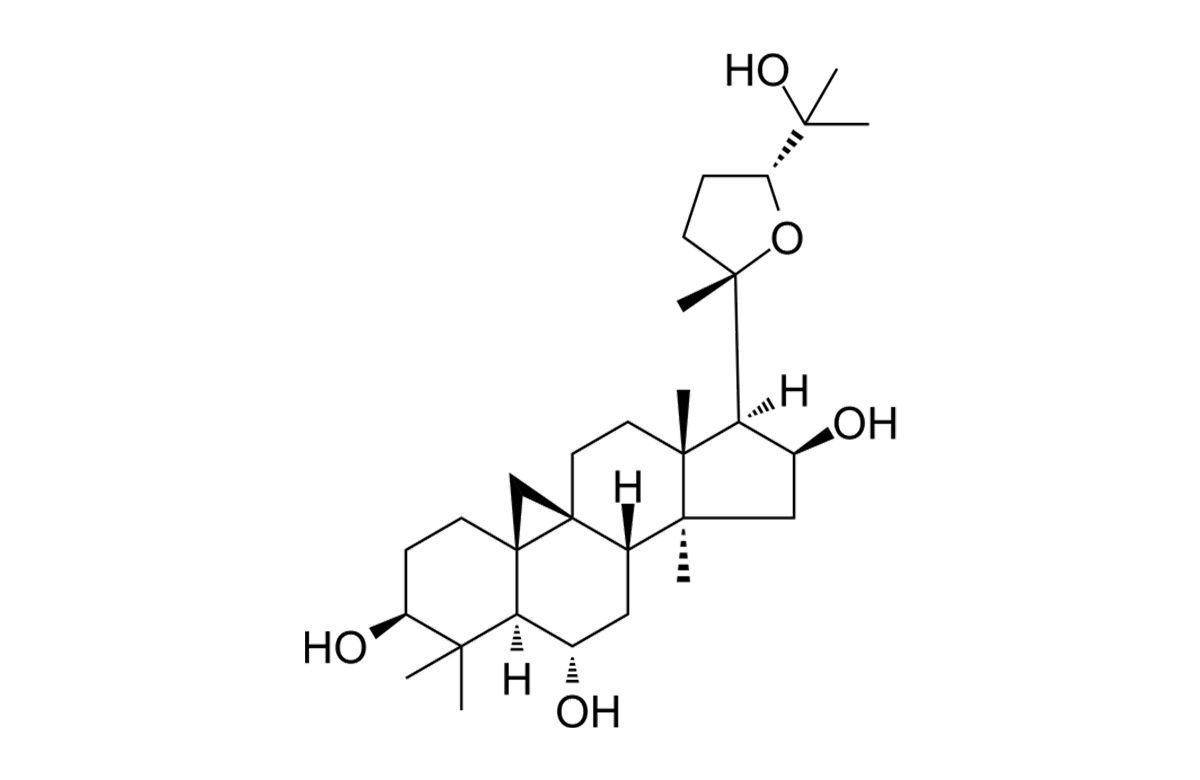Cycloastragenol is a natural compound that is derived from the Astragalus membranaceus plant, commonly known as Huangqi or Astragalus root. This plant has been used for centuries in traditional Chinese medicine for its potential health benefits. Cycloastragenol is specifically a tetracyclic triterpenoid compound found in Astragalus plants.
One of the primary claims associated with cycloastragenol is its potential to have anti-aging effects. It has been suggested that cycloastragenol might have the ability to enhance telomerase activity, an enzyme that plays a role in maintaining the length of telomeres at the ends of chromosomes. Telomeres are protective caps on chromosomes that naturally shorten as cells divide and age. Longer telomeres are generally associated with healthier and more youthful cells.

Because of this potential link to telomeres and aging, cycloastragenol has gained attention as a dietary supplement and is marketed as a way to support longevity and overall well-being. However, it’s important to note that the scientific evidence supporting these claims is still limited and controversial. While some studies have shown promising results in terms of telomerase activation and potential health benefits, more research is needed to fully understand the compound’s effects on human health and aging.
As with any dietary supplement, it’s important to exercise caution and consult with a healthcare professional before using cycloastragenol, especially considering the lack of comprehensive research and regulation in the supplement industry.
The potential benefits of Cycloastragenol
Cycloastragenol is a natural compound found in the root of Astragalus membranaceus, a traditional Chinese medicinal herb. It has gained attention for its potential health benefits, particularly its association with telomerase activation and anti-aging effects. However, it’s important to note that while there is some promising research, more comprehensive studies are needed to fully understand its effects and benefits. Here are some potential benefits of Cycloastragenol based on the available research up to my last knowledge update in September 2021:
Telomerase Activation: Telomeres are protective caps at the ends of chromosomes that naturally shorten as cells divide over time. This shortening is associated with cellular aging. Cycloastragenol has been investigated for its potential to activate telomerase, an enzyme that can extend the length of telomeres, potentially slowing down cellular aging and promoting longevity. Telomerase activation might have implications for various age-related diseases.
Anti-Aging Effects: Some animal and cell culture studies suggest that Cycloastragenol may have anti-aging effects by supporting cellular health and potentially extending cellular lifespan. These effects could lead to improvements in skin health, immune function, and overall vitality.
Immune System Support: There is some evidence to suggest that Cycloastragenol may have immune-modulating effects. It could potentially enhance the function of certain immune cells and contribute to a more balanced immune response. This could be particularly relevant for individuals with compromised immune systems or those susceptible to chronic inflammatory conditions.
Cardiovascular Health: Some research suggests that Cycloastragenol might have a positive impact on cardiovascular health by improving blood vessel function and reducing oxidative stress. These effects could potentially contribute to lower blood pressure and a reduced risk of cardiovascular diseases.
Neuroprotection: Limited studies in animal models have indicated that Cycloastragenol might have neuroprotective properties, potentially protecting brain cells from damage and degeneration. These effects could have implications for neurodegenerative diseases like Alzheimer’s and Parkinson’s.

Antioxidant Properties: Cycloastragenol has been shown to possess antioxidant properties, which means it may help neutralize harmful free radicals in the body. This antioxidant activity could play a role in reducing oxidative stress and mitigating damage to cells and tissues.
It’s important to emphasize that while these potential benefits are intriguing, more high-quality research is needed to establish the effectiveness, safety, and appropriate dosages of Cycloastragenol. As of my last update, human clinical trials have been limited, and much of the current evidence comes from laboratory studies and animal experiments. If you’re considering using Cycloastragenol as a supplement, it’s recommended to consult with a healthcare professional to ensure its appropriateness for your specific health situation and to discuss potential interactions with other medications or supplements you may be taking.
